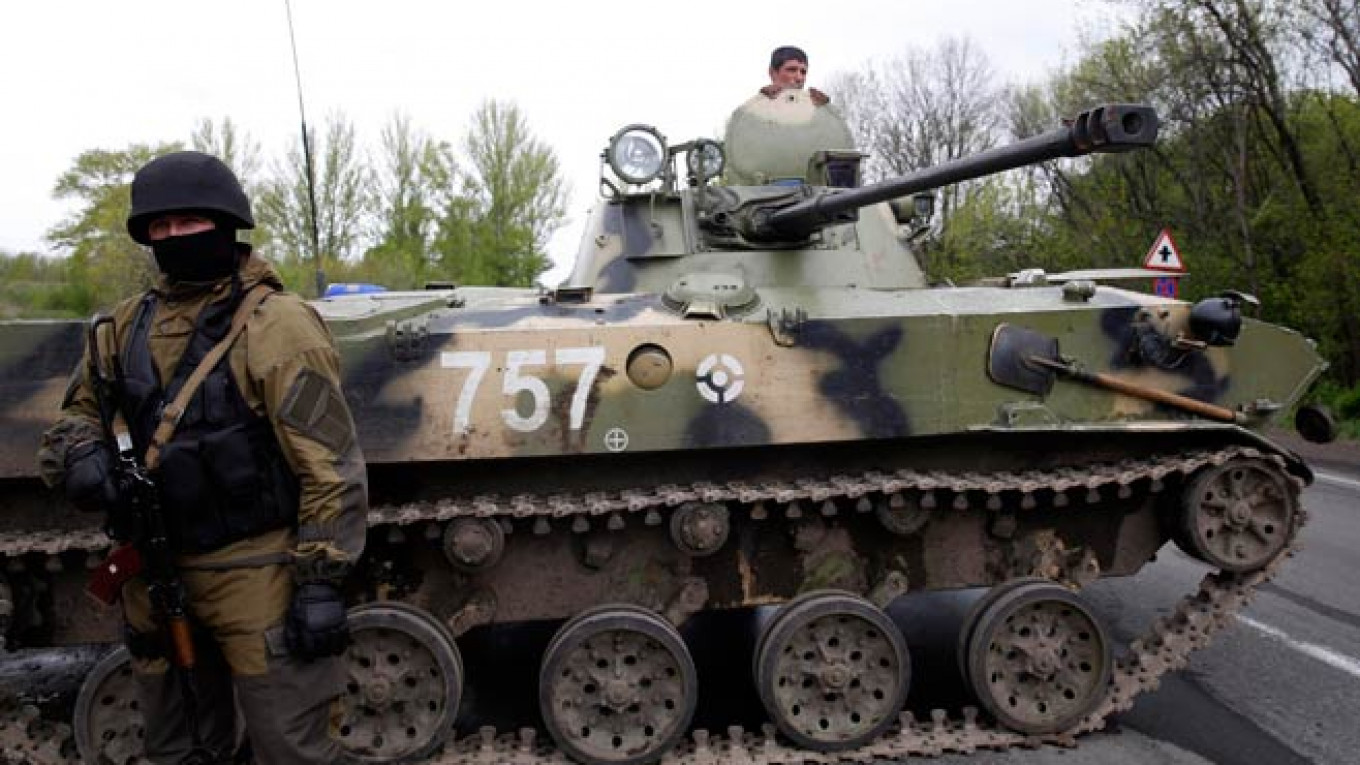Ukrainians are flooding Russian immigration offices amid fears of a humanitarian catastrophe at home, the head of the Federal Migration Service said Tuesday, while representatives of the Ukrainian diaspora maintain that the upsurge is due to recent amendments in Russian migration law.
"At first I said there were symptoms of a humanitarian catastrophe in Ukraine, and those symptoms are becoming more and more apparent," Konstantin Romodanovsky said in a speech to the Federation Council on Tuesday.
"Ukrainians have begun to turn to us en masse, looking for ways to permanently stay on Russian territory," he said.
According to Romodanovsky, 5,000 to 6,000 Ukrainians go to FMS offices every day, while before the uprising in Ukraine that began late last year, their number was "negligible."
The migration service's press department was unable to specify by the time of publication what status the Ukrainian applicants were applying for or from what figure the numbers had grown.
Up to 5 million Ukrainians work in Russia, sending about $2.3 billion home to their families every year in remittances, President Vladimir Putin said during his last official meeting with ousted Ukrainian President Viktor Yanukovych on Dec. 17.
According to official FMS data, 1,604,764 Ukrainian nationals were living in Russia as of April 2 this year, of whom 1,011,728 were male.
"I have not noticed any increase in the number of Ukrainians in Russia; what I do know is that many Crimean residents are fleeing to Lviv in western Ukraine," Viktor Girzhov, co-chair of the Ukrainians of Moscow organization, told The Moscow Times.
Girzhov said that new migration rules that came into effect on Jan. 1 restricting Ukrainians from staying in Russia to no more than 90 days out of every 180 had obliged many migrant workers to formalize their status.
Father Kirill Mironov, a priest of the Greek-Catholic church that is prominent in western Ukraine, said he had observed the same pattern.
"I think what has happened is that people who were working in Russia illegally have now contacted the authorities for the appropriate paperwork," he said by phone from St. Petersburg.
Bogdan Bezpalko, chairman of the organization Russia's Ukrainians, said he had noticed an upsurge in the number of Ukrainians seeking to settle in Russia.
"There have been several cases in which Ukrainians have turned to me for help. Many of them want to live in Russia's south, near Rostov," said Bezpalko, whose organization has been criticized for being pro-Russian and which Girzhov described as "Ukrainophobic."
"There is a stalled civil war happening in Ukraine and people know that one day it could turn into a full-scale one, so of course they want to escape it," said Bezpalko.
The FMS first said a flood of Ukrainians had rushed to Russia to seek asylum back in March. Observers and human rights activists denied the claim, saying the number was no higher than in previous years.
The comments in March followed a report aired by state-run Channel 1 that said there were long lines of cars at the Russia-Ukraine border. That claim was refuted by Ukrainian media, who pointed out that the footage accompanying the report in fact showed the Ukrainian-Polish border.
Contact the author at i.nechepurenko@imedia.ru
A Message from The Moscow Times:
Dear readers,
We are facing unprecedented challenges. Russia's Prosecutor General's Office has designated The Moscow Times as an "undesirable" organization, criminalizing our work and putting our staff at risk of prosecution. This follows our earlier unjust labeling as a "foreign agent."
These actions are direct attempts to silence independent journalism in Russia. The authorities claim our work "discredits the decisions of the Russian leadership." We see things differently: we strive to provide accurate, unbiased reporting on Russia.
We, the journalists of The Moscow Times, refuse to be silenced. But to continue our work, we need your help.
Your support, no matter how small, makes a world of difference. If you can, please support us monthly starting from just $2. It's quick to set up, and every contribution makes a significant impact.
By supporting The Moscow Times, you're defending open, independent journalism in the face of repression. Thank you for standing with us.
Remind me later.






